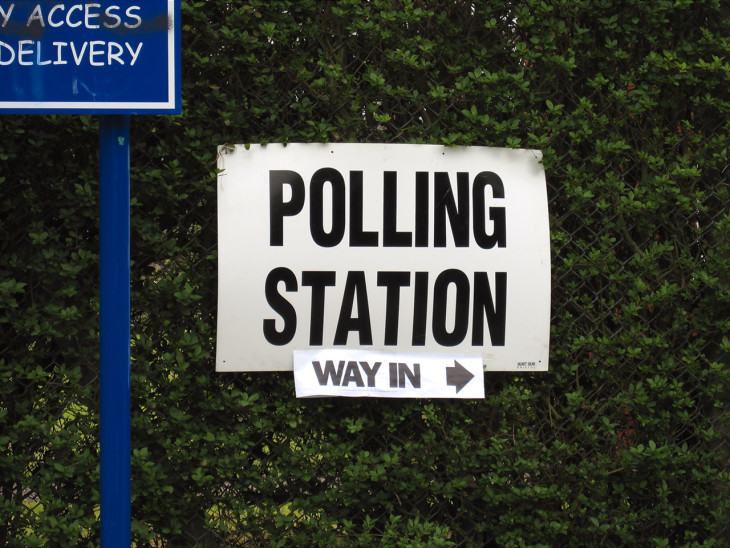I think I was at a piazza somewhere in old-town Rome, a hot afternoon in the early nineties. Together with five Norwegian friends we were part of a big youth manifestation, where young people from across the continent campaigned for Europe, democracy and solidarity. I was part of a group of yes-to-EU Norwegians, mainly going to Rome to prepare for a referendum on Norwegian membership in the European Union, which we believed would come out of the fall of the Berlin wall the year before. (in fact the referendum would take place in November 1994, resulting in a narrow No, leaving Norway outside of the EU, but paying the cost of full membership in the internal market).
On our 24 hours train-ride from Oslo to Rome we had been thinking, talking and even disagreeing about how we could win the referendum and get Norway to become a member of the EU. We were convinced that the fall of the Communist regimes in Europe would lead Norway into an enlarged European Union. We also believed in the EU to protect the environment, control global capital and protect minorities.
There, just after we had walked through beautiful Rome together with Nordic friends, we saw a familiar face, the pro-European and famous Danish Minister of Foreign Affairs, Mr Uffe Elleman Jensen. He was a very down-to-earth politician, having skipped the gala-dinner at one of the palazzo’s for a hamburger in the street. He told us he had just met with his European colleagues, discussing what was to become the Maastricht Treaty – including a new common currency – the Euro, common foreign and security policy and a European citizenship.
I remember that we were impressed with his European ambitions, but still with our Inter-rail discussion the night before in the back of our head: How does this match our pragmatic strategy on how to win over the Eurosceptic Norwegians in a referendum? So one of us asked Uffe: Why this hurry with European integration?
The answer was somewhat surprising: – Because this is the last generation of European leaders who have experienced the war, the Danish Minister of Foreign Affairs told us.
He was of course right. The European Union – or the European Coal and Steel Union at that time – was established on the ashes of the Second World War in Europe, a war that killed millions and left European roads, railway, bridges and societies in total ruins. The main mission of the EU was to secure peace in Europe.
This does not anymore relate to the everyday life of ordinary europeans today. On the contrary, the EU today is built on a very elite-centered strategy, also reflected in Elleman Jensens answer. This strategy requires a decision-making process where national leaders do their horse-trading in secret, blaming the EU for the ugly compromise coming out of it.
These elites are supported by the «grey generation» of people over 40, stressed by hectic family/job conflict, increasingly resorting to selfishness in the sofa in front of exaggerated consumption of TV-series at Netflix and HBO. This reminds me of when I travelled in Prague before 1989, when the totalitarian regime provided subsidies to the Czechoslovakian beer industry because they thought that would make the population passive consumers of totalitarian politics, and resistant to democratic change. It worked for 20 years until the velvet revolution in 1989, when the Czechs peacefully became members of a democratic Europe.
Unsurprisingly, despite their good intentions, the elite political leaders have proven incapable of creating popular support for their policies, when putting the policies to a test in referendums on the EU, be it in Denmark, France, the Netherlands and now the UK.
In addition, the ruling generation in todays Europe has proven unable to secure support from vital stakeholders in the European project. This is truly a failure: The architect of Europe, the French diplomat Jean Monnet based the establishment of the European Union in 1957, on the trade unions, the industry and the workers in the European institutions. Today these alliances have, arguably, failed the European project. Trade-unions turn against the EU, it’s hard to get the CEOs of European industry to come out in favor of EU. Even the eurocrates themselves – once the ideological backbone of the European institutions – remain silently bureaucratic and more worried about salary reduction than providing proposals to get the EU out of its institutional fatigue.
With this backdrop I will argue that it is surprising that young Brits still support the EU: According to YouGov data only 20 % of British youth want to vote the UK out of the EU (Brexit). The strongest anti-EU sentiments exist among the older generation, which has benefitted from the economic growth in post-war Europe, safe public jobs with automatic salary increases and amazing pension system. This is the generation that concretely and rather immediately benefitted from European welfare, peace and solidarity. However, they did nothing to modernize politics and democracy. Instead, the UK electoral system is crippled with an antique and overly cumbersome registration system, effectively making many British youth unable to vote on Thursday. Only when Facebook two days before the registration deadline last week added a simple online tool, did the number of people registering to vote increase substantially. The turnout on Thursday will show if that was too late to catch the europhile youth.
Adding to this is a xenophobic anti-European British press supplying an endless row of Euro-myths seldom based on reality. Furthermore the interest of the young generation is blocked by political short-termism: all over the western world politicians only think to the next election (a few years ahead). This decouples today´s democracy from the interest of young people.
What is needed is an electoral system which incorporates the interest of the next generation. That is the very essence of the term «sustainability», a term based on solidarity not only across all segments of society, but also solidarity with future generations (as defined by the UN Brundtland Commission in 1987).
Today’s grownups have the managing positions in politics, business and media. Their power has been built up within the nation-state, and they see the survival of this nation-state as the best way to preserve their power. This generation, which opposed authorities in 1968 and 1989 based on a mix of innovation, environment concerns and opposition to authorities, have lost exactly that.
Somewhere their once open minds closed. Today’s political leaders seem unable to grasp the challenges of society and the future. How can they provide the solutions when they don’t seem to understand the problem?
However, young people today are more digital, mobile and social than ever, to the extent that they are much less tied up behind national frontiers than previous generations. Having grown up digital, they might see opportunities where their parents only see threats and barriers. This perhaps shapes their attitude to European integration.
The «youth majority» notwithstanding: the «grey-generation» could vote Britain out of Europe on Thursday, keeping their unsustainably accumulated wealth for themselves behind national barriers. The millennials are left with the dishwashing and the bill for global heating, tribal nationalism and a fading democracy.Let`s hope Britains young folks take this opportunity to place themselves firmly on the side of the post-national future.



